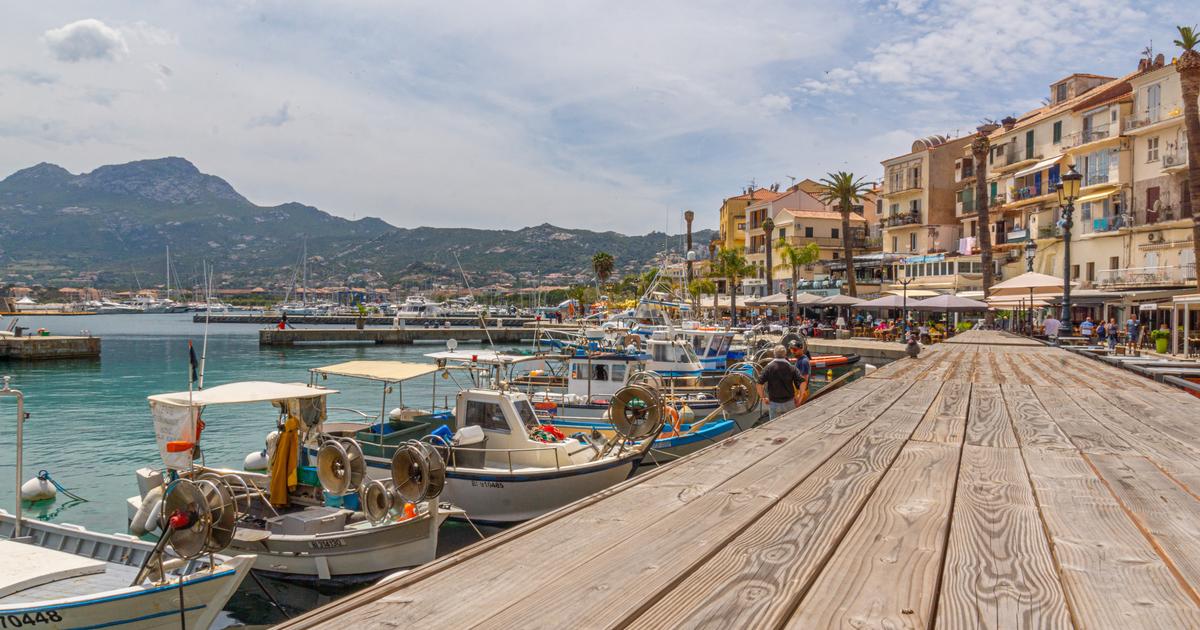Enlarge image
LNG special ship "Neptune": Such pots could soon be off Rügen
Photo: Jens Koehler / IMAGO
The import of liquefied natural gas (LNG) has become enormously important since Germany became independent of Russia's gas supplies.
The first LNG terminals are already in operation.
In some places there is a heated debate about the planned buildings.
On Rügen, the largest German island, 2,500 people protested against an LNG terminal off their coast on Sunday.
What exactly is planned there?
And what concerns do the islanders have?
The overview.
What exactly is to be built in front of Rügen?
In mid-February, Mecklenburg-Western Pomerania's Economics Minister Reinhard Meyer (SPD) presented the plans: About 4.5 to 6.5 kilometers from Sellin in the south-east of Rügen, two platforms are to be built on which floating liquefied natural gas terminals (FSRU) can be moored.
LNG tankers are to dock at the terminals and deliver their cargo to the FSRUs, which are around 250 meters long.
The gas will then be transported to Lubmin via a roughly 38-kilometer-long connecting pipeline.
Excess tubes from the Nord Stream 2 line are to be installed for this purpose.
The first LNG terminal in Western Pomerania was opened in Lubmin in mid-January.
Part of the new project will be a federally chartered liquefied natural gas terminal.
The project is being implemented by the energy company RWE.
How exactly the offshore constructions should look like is not yet known.
RWE still wants to submit the relevant documents, it is said.
When should the construction be finished?
The planning phase is currently underway.
The head of the responsible mining authority in Stralsund, Thomas Triller, spoke of various stages of expansion.
"One tries to get a station ready first." An FSRU should then be stationed at this station.
"That's now planned for late 2023," Triller said.
In 2024, a second »tower«, as he called the construction, was to be added.
It is possible that a total of four floating terminals will be built at the site.
In the end, an estimated feed-in capacity of up to 38 billion cubic meters of natural gas per year should be possible.
For comparison: According to Eurostat, Germany imported a total of around 80 billion cubic meters of natural gas in 2020.
So 38 billion cubic meters of LNG deliveries via one site would be an enormous number.
The Federal Ministry of Economics has already put the number into perspective.
This is the maximum capacity of the connection line, said a spokesman for the ministry.
There could also be a number of changes during the project planning.
What speaks for the plans?
The import of liquefied natural gas is already causing more ships to be on the move off Rügen.
A depot tanker, which is regularly loaded with liquefied natural gas by incoming ships, is anchored in front of the island.
Shuttle tankers pick up the LNG and bring it to Lubmin, the LNG terminal that opened in mid-January.
According to NDR, the shuttle tankers are suspected of polluting the beaches and annoying people on the island with noise.
With the direct connection through an LNG terminal off Rügen, these shuttle trips would no longer be necessary.
What do the people on Rügen say?
The government's plans have met with protests.
Around 2,500 people demonstrated in Baabe on Rügen on Sunday against the construction of the LNG terminal off the island.
According to police reports, around 400 people demonstrated in Sellin on Saturday.
They are primarily concerned with two issues: environmental protection and tourism.
Stefanie Dobelstein from the "Livable Rügen" initiative, which was one of the organizers on Sunday, criticized that the terminal at sea would be visible from the shore.
According to her, four huge ships will be moored there in the future, "each 300 meters long, 43 meters wide and 50 meters high".
This industrial plant is then located in an area through which the swarms of herring migrate to spawn in the Greifswalder Bodden.
In addition, there would be shipping traffic to deliver the LNG.
Dobelstein called the LNG Acceleration Act a catastrophe.
Nature conservation and human interests threatened to be left behind.
A demo participant told the NDR that he was worried "that the coastal landscape would be spoiled.
That the tourists are not satisfied with the fact that an LNG terminal is being built off our coast.« This then affects the many people who work in the tourism industry on the island.
Another demo participant said that the fish cooperatives and fish processing had already disappeared from the island: "If tourism also goes down the drain, we can close the island."
The German Environmental Aid (DUH) criticized the project as completely oversized.
"The construction of the offshore terminal just a few kilometers off the coast of Rügen would be an unprecedented industrialization of the Baltic Sea," says the association.
What does politics demand?
The federal government has been asked from several directions to critically examine the plans.
Mecklenburg-Western Pomerania's Economics Minister, Meyer, who is responsible for energy and tourism, presented the government's plans, but is not enthusiastic about them himself.
He would like the federal government to examine alternatives to the construction of offshore platforms.
That's why the federal government was asked, Meyer said.
And the SPD member of the Bundestag, Anna Kassautzki, who represents the constituency of Western Pomerania-Rügen in Berlin, also supports the critics of the project.
She demands a plausible explanation of the necessity of the project and a serious examination of all alternatives.
“A project like this needs transparency and the involvement of local actors,” said Kassautzki.
In a letter, she asked Federal Economics Minister Robert Habeck (Greens) to seek dialogue with everyone involved.
A reaction from Habeck is not yet known.
The communities on the island also spoke up.
"We call on the federal government to suspend the obviously hasty plans and to initiate a broad dialogue with all interest groups and experts," says a joint statement by 34 mayors and thus almost everyone on the island.
What's next?
The Federal Government has not yet made any concrete statements on the demands of the politicians.
However, the NDR quotes from a statement from the Federal Ministry of Economics: The plans are not yet complete, "Talks between those involved are still ongoing.
Therefore, no information can be given about the details of the project.
In the planning phase, various options are always examined and weighed against each other.«
ptz/dpa














